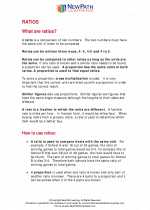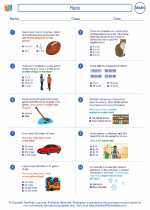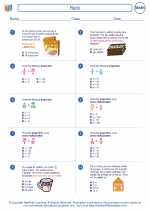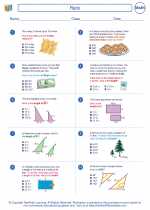Empirical Probability Study Guide
Definition:
Empirical probability is the probability of an event based on actual data or observations. It is calculated by taking the number of favorable outcomes and dividing it by the total number of outcomes.
Formula:
The formula for empirical probability is:
Empirical Probability = Number of Favorable Outcomes / Total Number of Outcomes
Example:
Suppose you roll a fair six-sided die and want to find the empirical probability of rolling a 3. You roll the die 50 times and get 10 3s. The empirical probability of rolling a 3 is:
Empirical Probability of rolling a 3 = 10 / 50 = 0.20
Steps to Calculate Empirical Probability:
- Identify the event for which you want to find the empirical probability.
- Conduct the experiment and collect data on the number of favorable outcomes.
- Divide the number of favorable outcomes by the total number of outcomes to calculate the empirical probability.
Properties:
Empirical probability is based on actual data and can vary depending on the sample size and the specific outcomes observed.
Use Cases:
Empirical probability is often used in fields such as statistics, economics, and sports to make predictions based on observed data.
.



